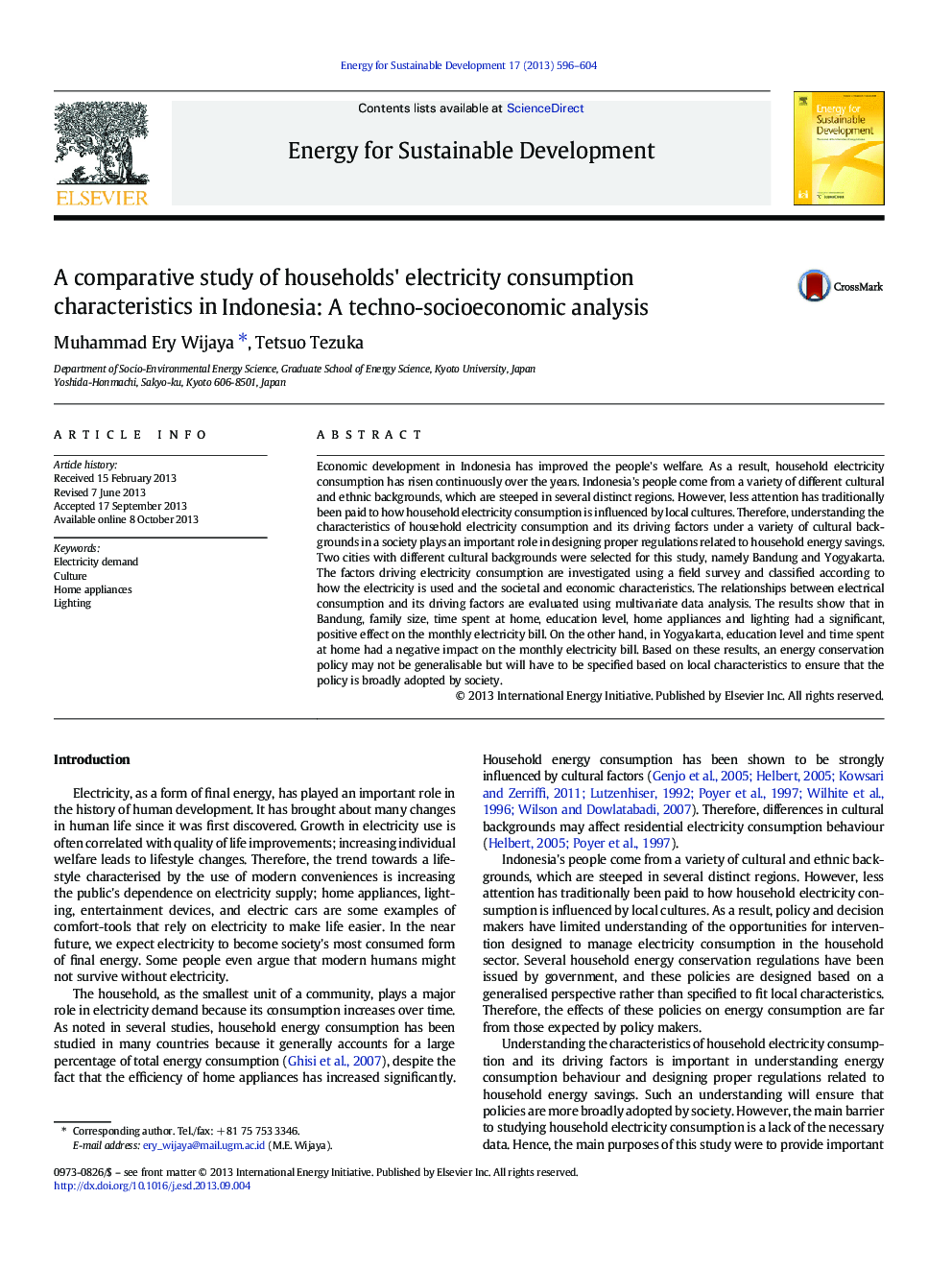| کد مقاله | کد نشریه | سال انتشار | مقاله انگلیسی | نسخه تمام متن |
|---|---|---|---|---|
| 1047048 | 945184 | 2013 | 9 صفحه PDF | دانلود رایگان |

• Cultures may well have specific effects on residents’ behavior in using electricity.
• Two cities were selected for understanding household electricity consumption.
• The driving factors are classified according to techno-socioeconomic characteristics.
• There were driving factors differences in electricity consumption between two cities.
• Energy policy may not be generalisable but specified on local characteristics.
Economic development in Indonesia has improved the people's welfare. As a result, household electricity consumption has risen continuously over the years. Indonesia's people come from a variety of different cultural and ethnic backgrounds, which are steeped in several distinct regions. However, less attention has traditionally been paid to how household electricity consumption is influenced by local cultures. Therefore, understanding the characteristics of household electricity consumption and its driving factors under a variety of cultural backgrounds in a society plays an important role in designing proper regulations related to household energy savings. Two cities with different cultural backgrounds were selected for this study, namely Bandung and Yogyakarta. The factors driving electricity consumption are investigated using a field survey and classified according to how the electricity is used and the societal and economic characteristics. The relationships between electrical consumption and its driving factors are evaluated using multivariate data analysis. The results show that in Bandung, family size, time spent at home, education level, home appliances and lighting had a significant, positive effect on the monthly electricity bill. On the other hand, in Yogyakarta, education level and time spent at home had a negative impact on the monthly electricity bill. Based on these results, an energy conservation policy may not be generalisable but will have to be specified based on local characteristics to ensure that the policy is broadly adopted by society.
Journal: Energy for Sustainable Development - Volume 17, Issue 6, December 2013, Pages 596–604